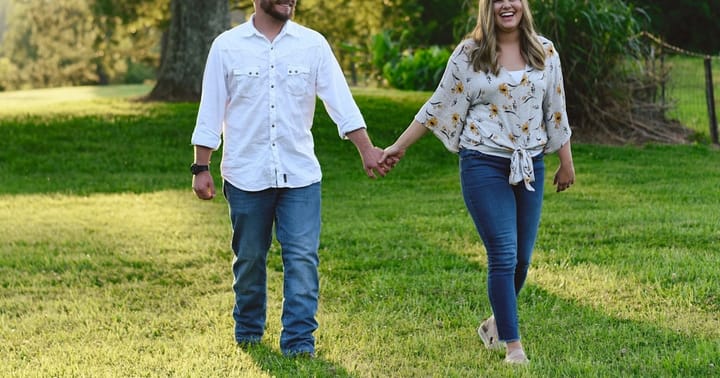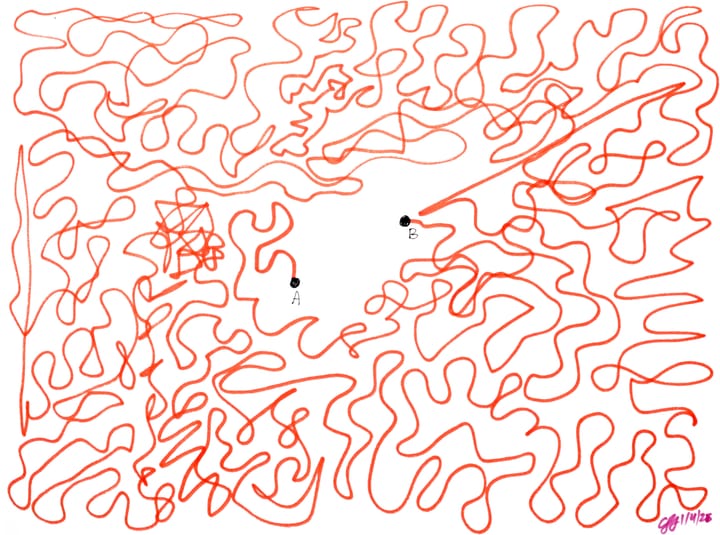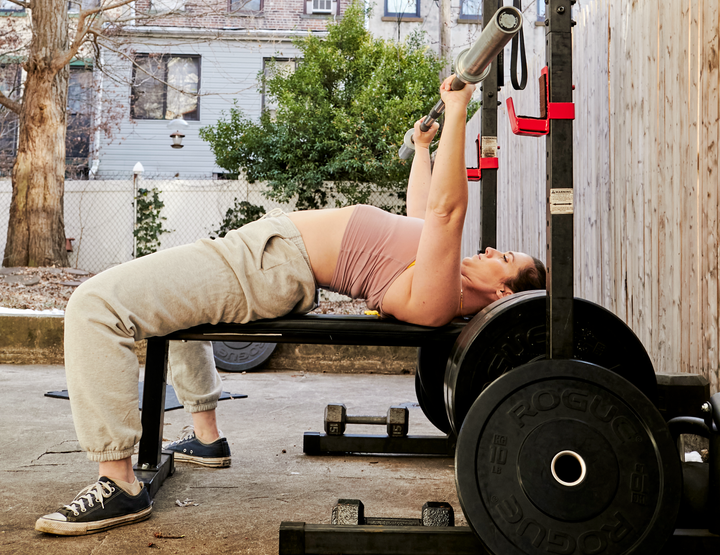How to break out of wanting a 'ballerina body' (or any other 'body')

ASK A SWOLE WOMAN
This is the paid Sunday Ask A Swole Woman edition of She’s a Beast, a newsletter about being strong mentally/emotionally/physically.
The Question
Hi Casey! I’ve read a bunch of your articles and understand that you are pretty against aesthetic goals, trying to look a certain way, for the most part. But any time I’ve ever tried to do anything body-related, food or exercise or diet or whatever, it’s always been with the goal of looking a certain way. Is it really that bad if the goal is to look a certain way, as long as I get more out of it than that, like I still feel good about myself? Can the aesthetic part be secondary? How can I make sure that I will feel good about myself? —Sarah
The Answer
This past week in the Link Letter, I wrote about why wanting a ballerina body is not exactly the same as other life goals, like wanting a roof over your head or retirement savings.[^1] But that leaves many of us with the question, "Then what?" How are we supposed to get along in the world without an aesthetic goal to give shape, literally but also morally, to our physical lives? Must we instead accept that all is chaos?
Of course not. But it’s not immediately obvious to many people what is supposed to be going on in people’s hearts and minds in place of “get a ballerina body.” But there are alternatives.
Up until my late twenties, I had zero concept of what my body was for other than looking as maximally attractive as possible. I had never heard of anyone talk about bodies, especially women’s bodies, as being “for” anything else. Now, I understand my body to have a much richer and more textured purpose, one that can be full of positive feelings and satisfying, enriching, validating experiences. Learning to lift weights was the vector for that. But wrapped up in that physical practice were a bunch of layered mental practices.
I like to tell people to strength-train, because it dovetails well with all the mental aspects of “understanding what to think about when you think about your body.” (It also has the benefit of having structure without being about how anyone looks.) But I suppose you don’t have to. And whether you do or don’t, it’s probably useful to unpack all those layers that I experienced there, just for posterity’s sake. And then I will sprinkle in some facts and research, for good measure.[^2] I’ll note that there’s a lot of interplay between all these things, so you’re not really meant to do them in order or discretely from each other.
Remember that aesthetics are not health
There is new research demonstrating all the time now that “health”, i.e. having low risk of of chronic diseases and feeling good and capable in your body, is not a particular look; it is overwhelmingly a set of behaviors. A study came out just last month finding that even people with significant amounts of body fat have different distributions of that body fat that tend to be less threatening to our overall health.
Likewise, mortality studies find that when we control for behaviors like balanced diets, exercise, not drinking, and not smoking, body weight is a much less significant factor. Therefore, let’s dispense with the idea that someone who wants a ballerina body is inherently healthier, more responsible, more suited to carry on the human race, whatever weird moralistic features people want to ascribe here. If someone claims it’s fine to want a ballerina body, and then someone else objects, and then the first person goes “but what’s so wrong with wanting to ~ be healthy ~???” they are moving the goalposts. I reject it. Next—
Nuke your social media
No one likes to hear this. Many like to defend social media on the idea that many people seem able to have unproblematic and joyous relationships with these apps. Here is how to know if you are one of those people: Can you leave it aside for an indeterminate amount of time, without your mind twitching toward checking your feeds, without framing things as potential posts, without generally feeling terrible and bereft without it? If not, congrats: You are not one of those people. I have learned that I am one of these people. There are many of us!
I’m really not trying to sound holier-than-thou. I have always enjoyed social media, and still do, in very low doses. I’m deep into the social media game! Long years have been invested in those accounts. I struggled with pulling these levers. I worried I’d disappear. I worried (abstractly, irrationally) it would no longer matter what I thought if I didn’t know the second it happened that Elon Musk jumped up and down on stage at the Trump rally, if I could not derisively giggle along with everyone in the moment. But that made it even more gratifying when I almost completely stopped posting and stopped checking, and that didn’t happen.
There are still many creators on social media whose content I love. But social media today is not the social media I came up on, in many significant ways. Just two days ago, I opened my Instagram feed and was delighted to see a jokey post from Ilona Maher about her Dancing With the Stars appearance. Then I scrolled down one post—one post!—and the very next one was something so toxic and incel-pilled I blacked it out from my memory. It was something like, A Dozen Raw Meats to Consume That Will Have Women Dying for You to Neg Them After You Lose 60 Pounds. The good stuff at this point is unfortunately just bait meant to hook you into the Lost Woods of the algorithmic feed.
Sure, this one post may only be minor psychic damage. But how many more times will it happen in the next 5, 10, 20, 45 minutes of scrolling? When all this became “figuring out what to ignore and what to pay attention to,” it became a lot of work. I don’t have the mental capacity or emotional bandwidth to have visibility into what so very many people out in the world are doing or saying, without becoming concerned that I’m missing something by not also doing those things. At minimum, I waste a lot of time researching stuff I don’t need to know about. At maximum, I feel unnecessarily inadequate. When I stopped, nothing changed for the worse. It’s a shame, perhaps, but also not my responsibility! It is fine to acknowledge that the thing I once enjoyed has changed.
Furthermore, I will let you in on a couple little secrets of removing yourself from social media: Because so much advertising and marketing energy is focused there, when you stop using it, you will fairly suddenly feel like you never see any ads at all, for anything. It is profoundly refreshing. Also, don’t underestimate the sheer power of stuff that matters to percolate out. Give it a chance to find you anyway. You’ll be surprised.
Here are my practical suggestions:
We can't have bots here.
Let's see some ID. (Just your real email, please.)





